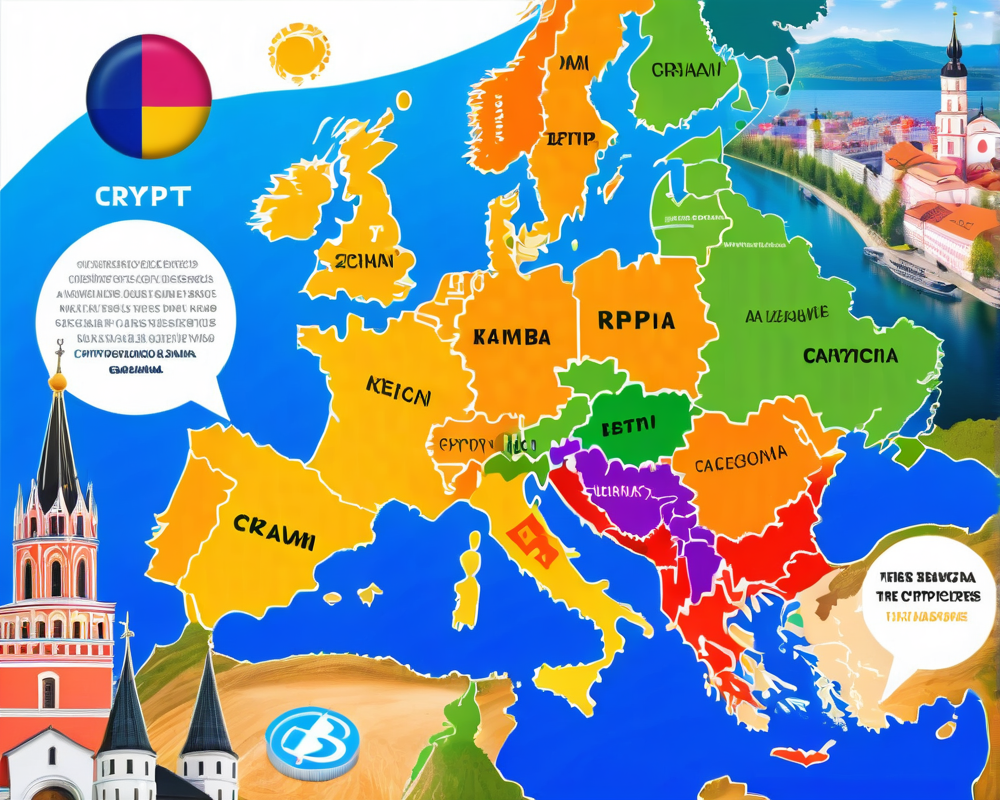The Crypto Landscape in Eastern Europe
As countries in Eastern Europe grapple with the adoption of cryptocurrencies, the region has become a melting pot of innovation, resistance, and sheer confusion. Just when you think you’re getting the hang of it, a new regulation pops up, leaving everyone scratching their heads. Let’s dive into the what’s what across countries like Russia, Poland, and Ukraine.
Russia: Riding the Regulatory Rollercoaster
In Russia, the relationship with cryptocurrencies is as clear as a vodka hangover. Recently, the government announced its first crypto investment bank, which is supposed to hold ICOs. The bill to regulate crypto was pushed hard, like a Rubik’s Cube trying to fit into a square box. While President Putin claims it’s about minimizing risks, some experts suggest that this is just a roundabout way of scaring potential investors away.
Also, there’s the mysterious HASH, a new crypto investment bank by Qiwi that’s set to rock the ICO scene. It’s almost like seeing a bear on a unicycle—odd but oddly fascinating.
Poland: The Land of Complaints and Confusion
The Polish Bitcoin Association has raised issues with fifteen financial institutions that are allegedly playing hide-and-seek with crypto platforms, selectively closing accounts like they’re on some sort of hunting trip. But fear not, the government seems to be slowly coming around and has promised to roll back crypto taxes. It’s a bit like a bad first date—awkward, but there’s probably a chance for a second one.
Ukraine: Where Chaos Meets Opportunity
In Ukraine, the crypto scene is as unpredictable as a game of roulette. Since the political unrest in 2014, the country has become somewhat of a crypto paradise—mostly because no one knows what’s going on! Legislators are buzzing about creating a legal framework, but in the meantime, Bitcoin operations can proceed with little interference. It’s like a ‘no shirts, no shoes, no problem’ attitude towards financial regulation.
Blockchain Ambitions Across the Region
All the while, blockchain technology is being embraced. From Estonia’s push for e-residency to Poland’s quest for a digitized national cryptocurrency, it feels like everyone is planning for the future, albeit with a bit of uncertainty. Interestingly enough, while some governments play hard to get, others, like Belarus, are sweetening the deal with tax holidays and support for blockchain businesses.
A Quick Look at Regulations Around the Region
- Estonia: Emphasizes compliance but has grand blockchain visions.
- Czech Republic: Tolerates crypto but wants identities verified.
- Hungary: Leaves us with more questions than answers.
- Macedonia: Straight-up banned Bitcoin; talk about a harsh breakup!
The crypto atmosphere in Eastern Europe can be likened to navigating a funhouse—confusing, thrilling, and occasionally filled with mirrors distorting reality. Investors and enthusiasts alike will continue to watch these developments closely as they try to figure out who truly enjoys the dance with cryptocurrencies and who is just stepping on toes.




